Workshops
Workshops are listed in order of presentation during the conference.
Can AI Be Your Ally?
presented by Sara Turnquist

(Int/Adv) AI is on the scene and it’s not going away. There are definitely unethical ways to use it, but this class covers some of the benefits of AI for writers.
From brainstorming to research, there are many avenues that writers are not tapping into. This class will also give some tips on how you can use AI to integrate with Scrivener and create a storyboard for your novel.
Self-editing Essentials: The Last Editing Class You May Ever Need (Part One)
presented by Lisa Carter

(Beg/Int/Adv) For many writers, editing is often the most dreaded part of the creative process. But by editing/chipping away at the ungainly lump of clay, also known as the first draft, writers will learn how to use this editing chisel to release the hidden beauty of their story and reveal the best manuscript they can present to an agent, editor or reader.
In this two-part course, we will work through the intense and extremely thorough editing checklist I developed over the course of writing thirty-four novels and counting.
BookFunnel 101
presented by Danielle Grandinetti

(Int/Adv) Do you want to share a free book with your readers? Safely send e-ARCs to your launch team? Participate in multi-author events?
BookFunnel is a wonderful tool, but how do you begin? In this hands-on course, I walk you through…
- Setting up your BookFunnel account (I’ll explain the levels so you can know the best use of your funds)
- Listing up your books (whether they’re traditionally or indie published)
- And the many other options available to you
By the end of the workshop, you’ll be ready to use this tool in whichever way will serve you best.
Wise Authors Build Their Worlds Upon the Rock
presented by E. Stephen Burnett

(Beg/Int) Fiction creators can get lost in a forest of fantastical worlds to jump into, from fantasy to sci-fi to supernatural versions of our own time. So how can we best build our own new worlds with originality and immersion?
Let’s survey how our own Creator built His world and inspired His word about it. Then let’s apply those examples to consider how we make our own “subcreations” that not only captivate and challenge readers but also glorify our own Author.
When the Honeymoon is Over: Producing a Finished Manuscript When You’re Not Inspired
presented by Joy K. Massenburge

(Beg/Int/Adv) Can you remember when words flowed onto the page? You were confident you were called to join the writing world and loving the journey. However, like any love relationship, you’re going to experience adversity. The dreaded rejection. The disappointing critique. And God forbid life take an unexpected turn.
This presentation will equip you with craft practices that will produce a finished manuscript in sickness and in health, richer or poorer, until you write THE END.
Self-editing Essentials: The Last Editing Class You May Ever Need (Part Two)
presented by Lisa Carter

(Beg/Int/Adv) For many writers, editing is often the most dreaded part of the creative process. But by editing/chipping away at the ungainly lump of clay, also known as the first draft, writers will learn how to use this editing chisel to release the hidden beauty of their story and reveal the best manuscript they can present to an agent, editor or reader.
In this two-part course, we will work through the intense and extremely thorough editing checklist I developed over the course of writing thirty-four novels and counting.
Money and Marketing: How Much Money Do You Need?
presented by Barbara M. Britton

(Int/Adv) No matter if you are with a Big Four publisher, small publisher, or indie-published, you—the author—will be key in getting your book discovered and purchased. What is Discoverability?
Merriam-Webster defines discover as “to make known or visible” or “to obtain sight or knowledge of for the first time.”
Learn ways to promote your book for free and with money.
Psyched Characters: Craft Fiction with Vivid Emotion
presented by Tina Yeager

(Int/Adv) Do your protagonists and antagonists rise from their pages to captivate a reader’s imagination? Sculpting characters with psychological depth infuses your story with power.
Discover personality types, trauma responses, and potential effects of mental health diagnoses. Learn solutions for the ethical dilemmas involved with portraying mental health disorders.
How does your character respond to crisis? How does she cope with pain? Get into your character’s head and make her unforgettable.
The Story Equation
presented by Rachel Hauck

(Int/Adv) The easy, organic, can’t-fail way to create compelling characters and plot your best-selling novel!
You can plot your entire book by asking one powerful question, and then plugging it into an “equation” that makes your plot and characters come to life.
You’ll learn how to create compelling characters, build the external and internal journey of your characters, create a theme, create story and scene tension, plot your novel organically, and even pitch and market your bestseller. All with one amazing question.
How to Fix a Sagging Middle
presented by Tara Johnson

(Int) The mid-point is often where stories lose momentum, the characters won’t behave, and each scene resembles slogging through wet cement.
This workshop will explore the keys to fixing a sagging middle by re-defining the main character’s GMC (goal, motivation, and conflict)
Using popular stories and movies, students will learn how to create a midpoint crisis that takes their stories from blah to unforgettable.
Pinterest: An Author’s Secret Weapon
presented by Kristi Woods

(Beg/Int) With over 522 million monthly active users, including a fast growing number of 18-34 year olds, authors can tap into an often-unused resource for audience building, brand exposure, and book sales–all with minimal time or interface compared to popular social media channels.
In this session, we’ll learn what Pinterest is and why we might use it, dip in with a quick overview of intriguing stats and helpful usage, and aim for a bright future with resources to know and grow Pinterest as our very own secret weapon.
Setups, Payoffs, and Other Neat Tricks
presented by Zena Dell Lowe

(Beg/Int/Adv) Nothing kills a story faster than a setup the audience can see coming.
This workshop teaches you how to plant setups invisibly and organically, so when the payoff hits, it lands with impact.
Learn the secrets behind masterful foreshadowing, misdirection, and thematic resonance—tools that make your audience feel delighted, not manipulated.
An Introvert’s Guide to In-Person Events
presented by Sarah Hamaker
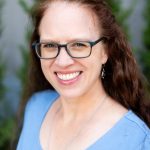
(Int/Adv) Book signings, craft fairs, library author events—all of these in-person events can be great ways for authors to get their books in front of a new audience. But all too often, writers shy away from attending because of fear.
This hands-on workshop will provide tried-and-true tips on how to pick the right venue, set up your table, and convert casual shoppers into book sales.
Each attendee will leave with ideas on merchandising their books as well as conversation starters for shoppers.
Evidence: The Silent Witness, Understanding Crime Scenes
presented by David Nabors

(Beg/Int/Adv) This class delves into what constitutes a crime scene beyond the initial location. We’ll explore Locard’s Exchange Principle and its crucial role in forensic investigations.
Locard’s Principle of Exchange states that whenever two objects come into contact, there is an exchange of materials between them. Individuals at a scene will always leave some trace of themselves at a crime scene and take something from it, providing crucial evidence for investigators.
Attendees will learn how to use evidence to connect suspects to crime scenes and how it can prove or disprove statements.
The Three Wells All Writers Face
presented by Lori Altebaumer
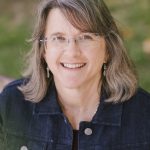
(Beg/Int/Adv) What happens when the business of writing drains the joy from our actual writing?
This workshop explores the three wells that will influence our writing, affect the impact our stories can have and determine the joy we experience in the process of writing: the well of scarcity, the well of striving, and the well of sufficiency.
We’ll learn to recognize behaviors associated with each well and identify the ways they can either sabotage our writing, or equip us to write bold stories filled with joy.
Make ‘Em Laugh Not Sweat: Writing Romantic Comedy with Heart
presented by Pepper Basham

(Int) Writing humor can be tricky! And writing romantic humor that sizzles but doesn’t cross the line can be even harder.
In this class, we’ll talk about tips for writing romantic comedy as well as look at how humor can work for your story and increase the ‘heat’ factor while still keeping the spice level more bell pepper than jalapeno!
Mastering Online Marketing: Key Essentials for Marketing Your Books Online
presented by Matt Jones

(Int) In this session, attendees will learn:
- How to identify their target audience and ways to reach them
- Key elements for an author website and how to use it for marketing
- How to build and use their social media presence to promote their books online
- Grow and use their mailing lists for building connection with their readers and marketing their books
Writing a Killer Proposal
presented by Hallee Bridgeman
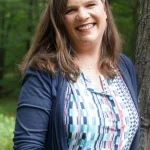
(Beg/Int) Hallee will take you step-by-step through her 54-page proposal that landed her a 3-book contract with Revell.
The Power of Audiobooks
presented by Emma Faye

(Beg/Int) Audiobooks are a fast-growing part of publishing—and your story deserves to be heard. In this session, professional narrator Emma Faye shares what authors need to know to successfully bring their books to life in audio.
Learn about working with narrators, tips on writing for audio, production paths (ACX, Findaway, production companies, etc.), and how to budget for an audiobook.
Whether you’re just curious or ready to dive in, you’ll walk away with a clear understanding of the audiobook process and how to bring your book to life.
The Essentials of Great Dialogue
presented by Zena Dell Lowe

(Beg/Int/Adv)Dialogue can make or break a story. Do you find yourself wishing your dialogue was a little spicier and a little less contrived and drab?
Whether you’re a screenwriter or a novelist, this course will teach the essential elements of great dialogue and give practical tools you can apply immediately to make your dialogue sharp.
Adapt Your Story into a Screenplay
presented by Rowena Kuo

(Beg/Int)A step-by-step formula for adapting either a full-length novel into a 2-hour screenplay or a short story into a 15 minute film.
We’ll discuss the essential elements a screenwriter should incorporate to interest potential producers.
How to Write a Page Turner: Creating Tension in Your Stories
presented by Linda Fulkerson
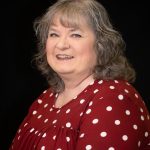
(Beg/Int/Adv)What makes a book “unputdownable” while other books make readers cringe?
The key to creating engaging fiction is including tension. This presentation will share tips on transforming your writing from meh to memorable.
Formatting for Indie Authors
presented by Paula Peckham
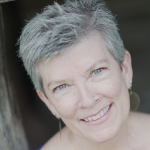
(Beg/Int)In this class, we will start with basics (line spacing, indents, page size) and move through the trickier bits, like headers, page numbers, table of contents, drop caps, use of Styles to make chapter titles consistent, tricks to manipulate where page breaks occur, anchoring inserted photos/images, Bible-specific formatting, and more.
Writing Personal Tragedies with Grace
presented by DiAnn Mills

(Int/Adv) Surviving life’s challenges that threaten our physical, mental, and spiritual well being with determination to help others takes courage. To write about the experience forces the writer to explore painful emotions and relive the tragedy repeatedly.
This workshop is designed:
- To show others in an unthreatening environment how a character walked through the grief and sorrow to achieve healing.
- Personal healing
- Personal spiritual growth
“Forget the former things; do not dwell on the past. See, I am doing a
new thing! Now it springs up; do you not perceive it? I am making a way in the wilderness and streams in the wasteland.”
Isaiah 43:18-19 (NIV)
